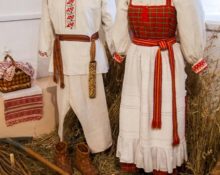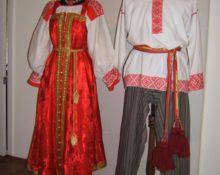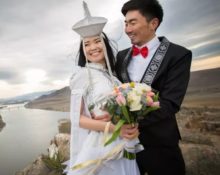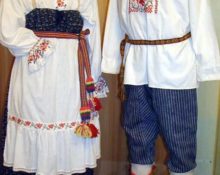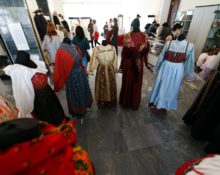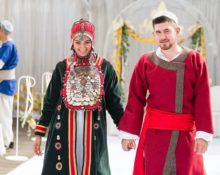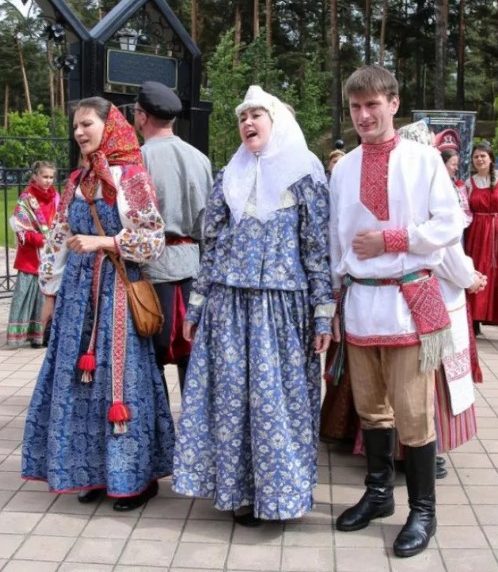 The territory of St. Petersburg and the Leningrad region is home to many different peoples, including very few people today. Each of them has its own cultural characteristics and folklore, because several centuries ago the number of their representatives was large.
The territory of St. Petersburg and the Leningrad region is home to many different peoples, including very few people today. Each of them has its own cultural characteristics and folklore, because several centuries ago the number of their representatives was large.
At all times, a wedding has been an important stage in the life of every person. The age-old wisdom associated with such a significant event can also help today’s young people who are still planning to cement their union. Let's consider the features of traditional wedding costumes of such peoples as Izhorians, Vepsians and Vozhans.
Traditional wedding costumes of the peoples of the Leningrad region
Izhora wedding clothes
Reference! The Izhorians are a small indigenous people of the northwestern lands. According to the population census, their number in 2010 was 123 people.
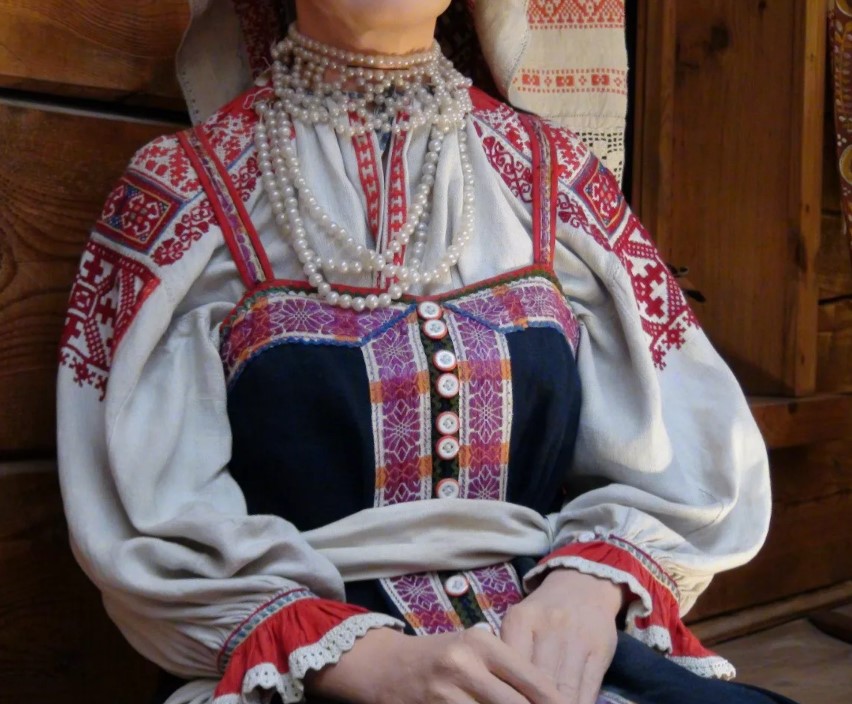
Women's wedding suit Izhorok consisted of a white linen shirt, sundress and apron.The shirt had wide sleeves that tapered to the wrist. Later, the sleeves began to be made short and puffy. Shirts embroidered in red, blue, green, yellow and white colors. Embroidery had a variety of patterns from schematic rhombuses to female figures. In addition to embroidery for decorating a wedding suit used handmade crocheted lace.
The sundress was also made of linen fabric homemade black or dark blue. The straps were decorated with sewn braid. The front of the sundress was decorated with ribbons with various patterns. The hem was decorated with bright ribbons and fabrics. Additional decoration included round metal buttons.
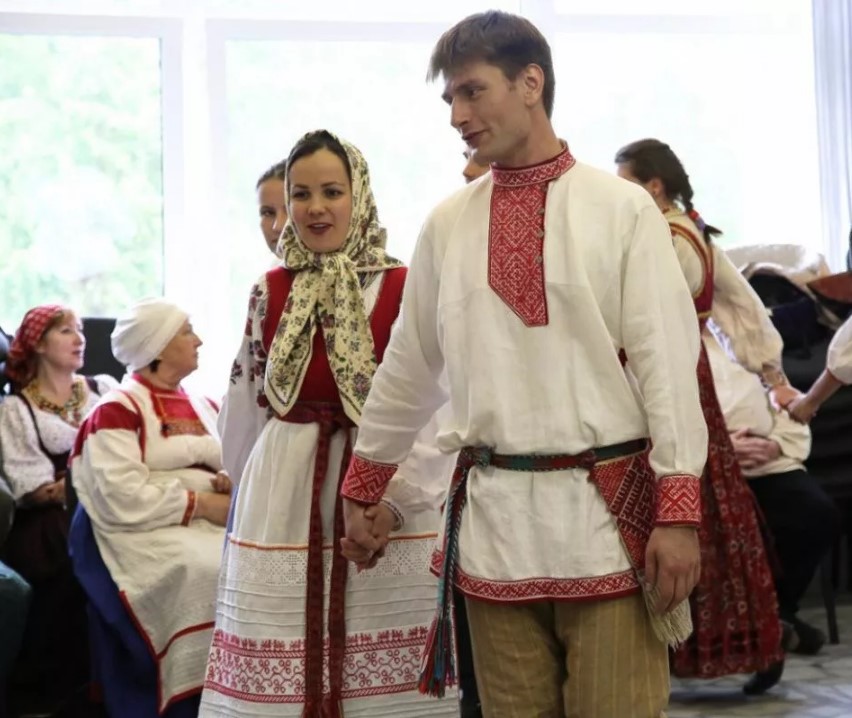
Reference! The bride wore a scarf tied in a special way, which is called “sappano”, and under the sundress a cloth fastened on one shoulder – “khurstut”. It was believed to bring happiness, protect the bride, and bring good luck in family life.
Men's wedding suit consisted of a linen shirt, leather trousers and boots. The shirt was richly embroidered with ornaments on the sleeves and collar, and also decorated with sequins. A drawing of horses was embroidered on the bottom of the shirt. According to custom, the mother sewed a suit for her son for the wedding.
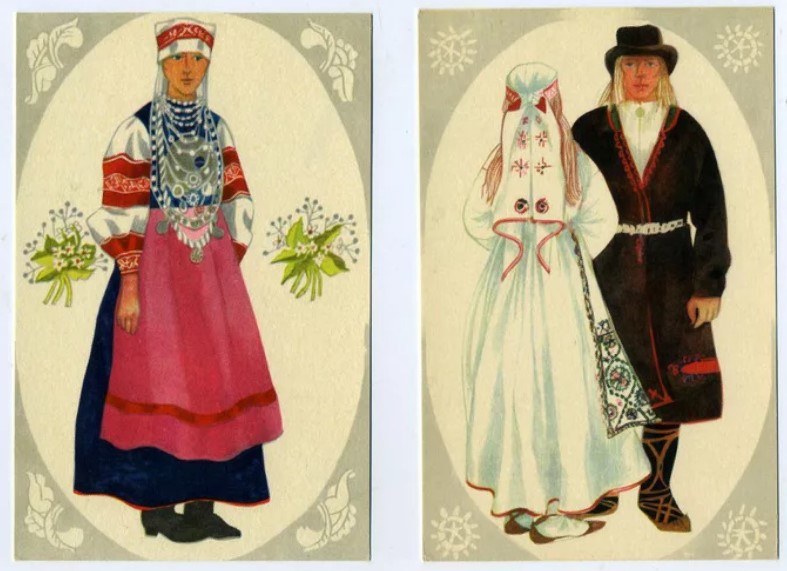
Ancient traditional wedding clothes of Izhora people
Interesting! The groom's sister embroidered a towel with which the groom should be belted - protection from evil spirits.
Features of the traditional Vepsian wedding costume
Reference! Vepsians are one of the Finno-Ugric peoples have long lived in the territory of northwestern Russia. Its representatives live in the Leningrad region, Karelia and the Vologda region. According to the 2010 census, their number is 5,936 people.
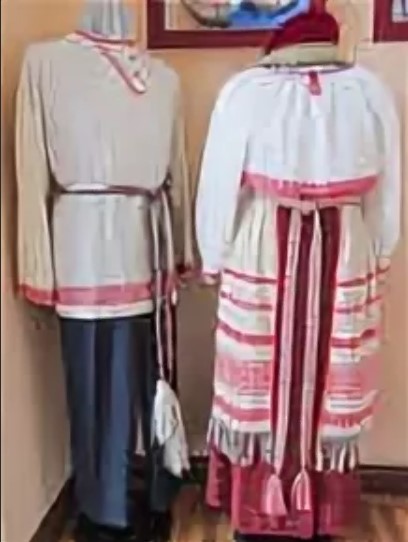
Ancient traditional wedding costumes of the Vepsians
basis bride's wedding suit, however, like everyday wear, there was an underskirt (stanovitsa), along the bottom of which there was an embroidered edge.
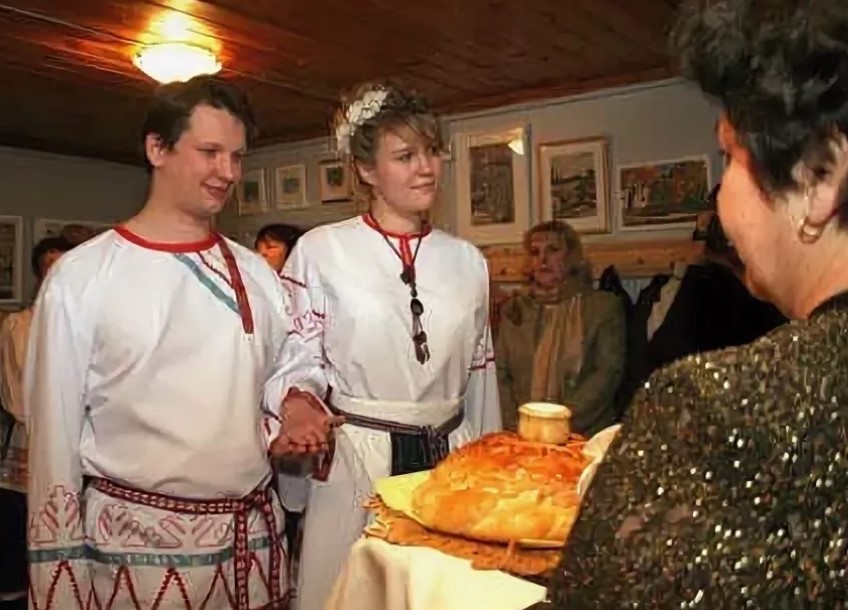
Modern Veps wedding in national costumes
Interesting! It was believed that the sewn edge in the skirt protected its owner from the evil eye.
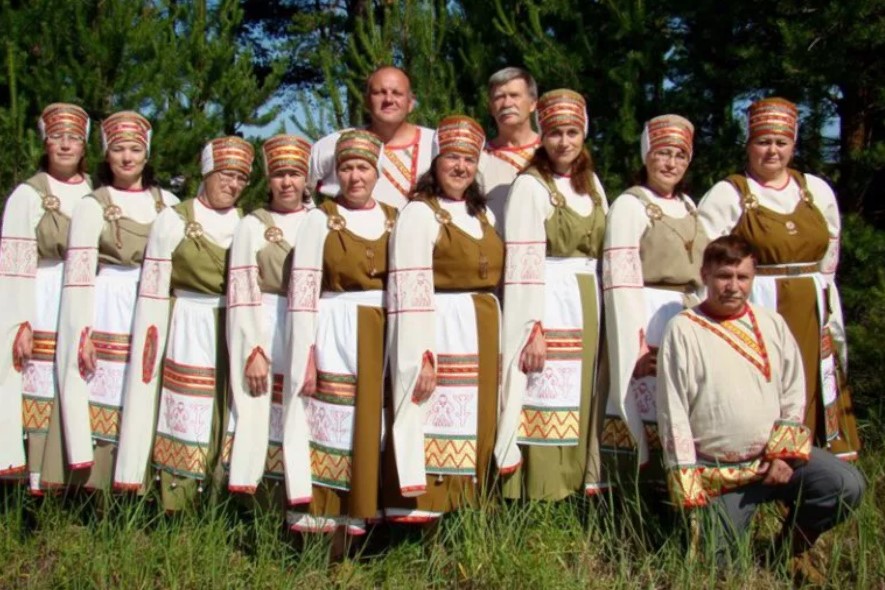
Festive traditional clothing of the Vepsians
A sundress was sewn for Vep brides from bright, specially purchased fabrics for the special occasion. Tied to a sundress apron.
Actively used decoration called “boro” - This is a necklace made of wooden and stone beads, between which pieces of fabric are inserted.
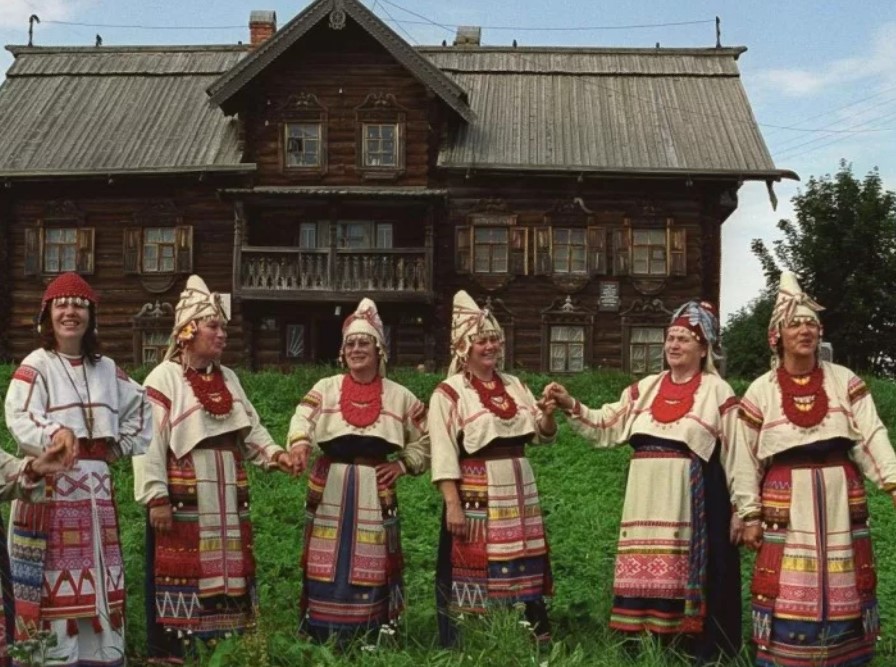
Groom's wedding shirt was sewn from self-woven canvas, decorated with red embroidery along the bottom, collar and cuffs. Sewn from white thin fabric groom pants, they were the same decorated with embroidery using red threads, multi-colored ribbons and fringe.
Wedding suits Vozhan
Reference! Vozhane - also an ancient people of northwestern Russia. As of 2010, its number is only 64 people.
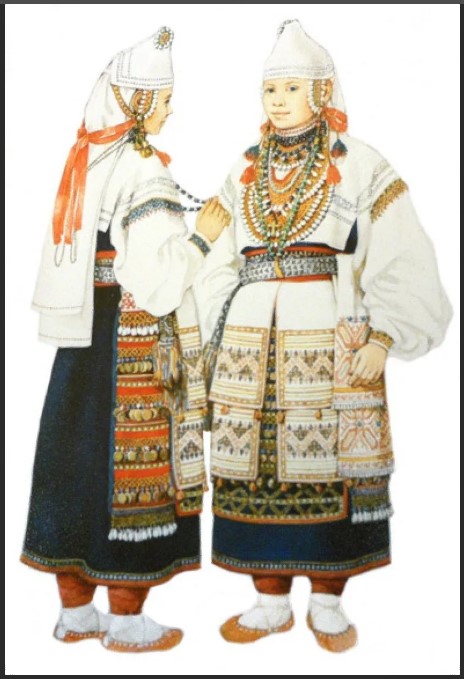
Ancient traditional wedding costume of Vozhan
According to the traditions of the leaders, bride put it on my head round headdress "pyasie"" The cap was decorated with beads, metal elements and shells, so women tried to protect themselves from the evil eye and spirits. According to tradition, after the wedding, the bride shaved her head hair and put on a tall white headdress called a paykas.
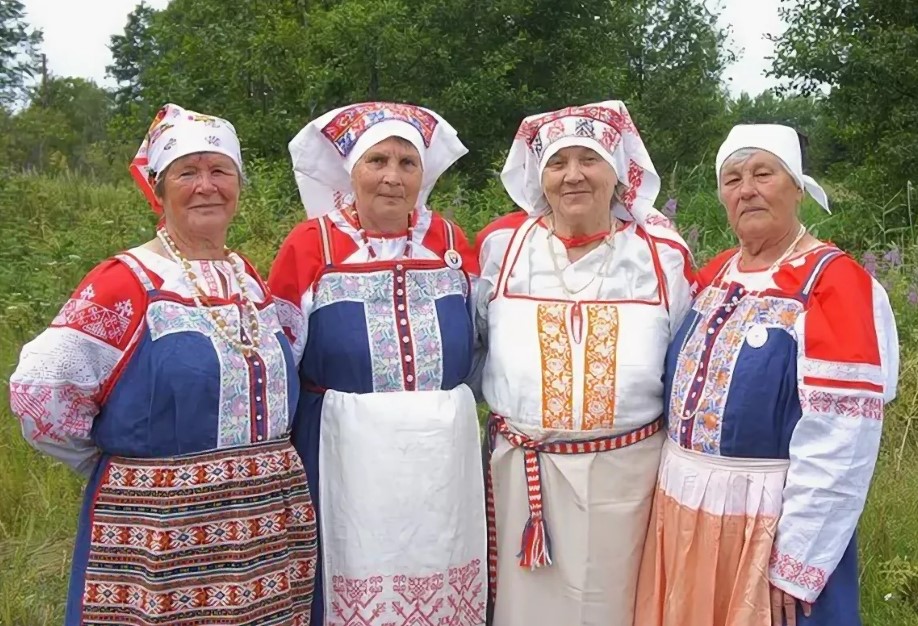
Interesting! In the 18th century, unmarried girls wore braids, and they let them go only after matchmaking until the wedding date. After they got married, they shaved their heads until the birth of their first child, and only then grew their hair.
Brides wore a sundress (“Ama”) stitched made of blue clothand then on top of it two aprons – linen on top, wool blue on bottom.
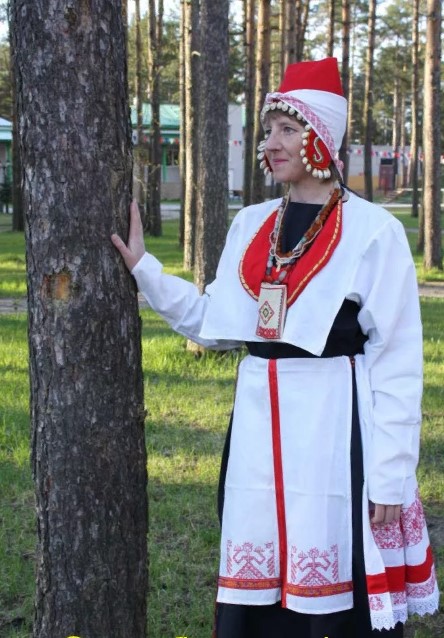
In women's leader's clothing there was a lot of belt decorations – aprons and gaiters. It was believed that they protected a woman from the penetration of evil spirits under her clothes.
Reference! Brides were usually tied with nine belts at a time. The groom gave one of these belts to the bride - it was a leather “puuta” belt, decorated with tin plaques. The weight of such a belt could reach several kilograms.
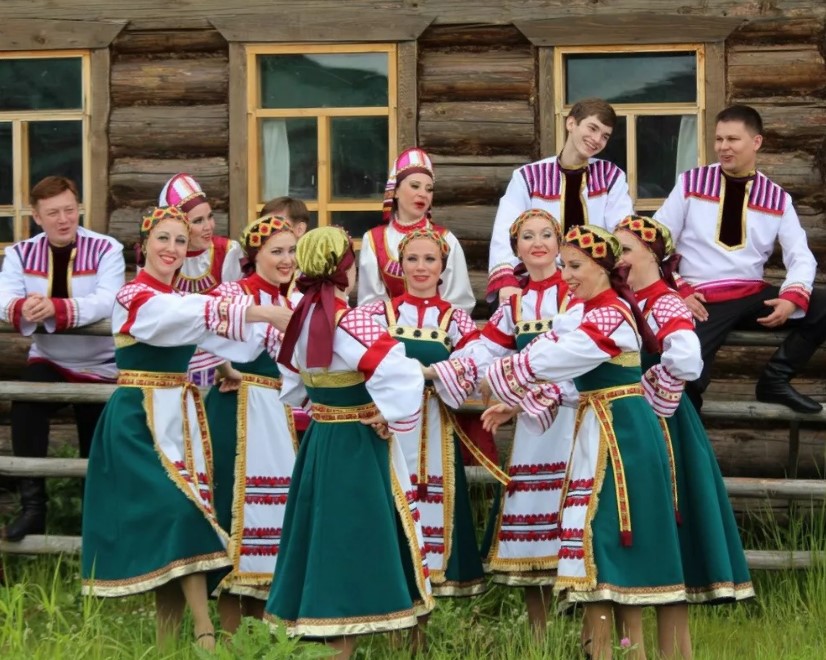
Characteristic wedding the decoration was beads. And they were put on at the same time in large quantities.
Wedding rituals, including those related to the costumes of the newlyweds, are an important component of the culture of peoples. Knowledge and observance of the traditions of their ancestors, according to which people lived from generation to generation, will help young people live in harmony with themselves.


 0
0